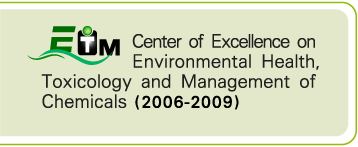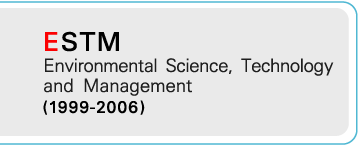การพัฒนาพลานาเรียเพื่อเป็นโมเดลสัตว์ทดลองเพื่อศึกษากลไกทางพิษวิทยาของ สารเคมีปนเปื้อนในสิ่งแวดล้อม
Asst. Prof. Dr. Puey Ounjai Faculty of Science, Mahidol University งานวิจัยนี้มีจุดมุ่งหมายเพื่อพัฒนาแนวทางในการทดสอบทางพิษวิทยา และการประเมินผลกระทบของสารพิษจากสิ่งแวดล้อม ที่มีต่อพลานาเรีย โดยวิเคราะห์ทั้งในเชิงพฤติกรรม พยาธิสภาพของเนื้อเยื่อการตอบสนองในระดับเซลล์ (ทั้งในเซลล์ต้นกำเนิด และเซลล์ร่างกาย) ไปจนถึงความเสียหายในระดับพันธุกรรม เพื่อสร้างองค์ความรู้ที่จะนำไปสู่การพัฒนาพลานาเรียให้เป็นสัตว์ทดลอง ราคาถูก เพื่อใช้ในการศึกษาพิษวิทยาของโลหะหนักในสัตว์ได้ และเพื่อพัฒนาพลานาเรียให้เป็นโมเดลในการศึกษาบทบาทของสิ่งแวดล้อมในเชิงจุลภาคในการสร้างอวัยวะใหม่ของหนอนตัวแบน แหล่งข้อมูล: โครงการวิจัยชื่อ “การพัฒนาพลานาเรียเพื่อเป็นโมเดลสัตว์ทดลองเพื่อศึกษากลไกทางพิษวิทยาของ สารเคมีปนเปื้อนในสิ่งแวดล้อม” – ระยะเวลาโครงการ: May 2017- March 2021
 Center of Excellence on Environmental Health and Toxicology (EHT)
Center of Excellence on Environmental Health and Toxicology (EHT)










